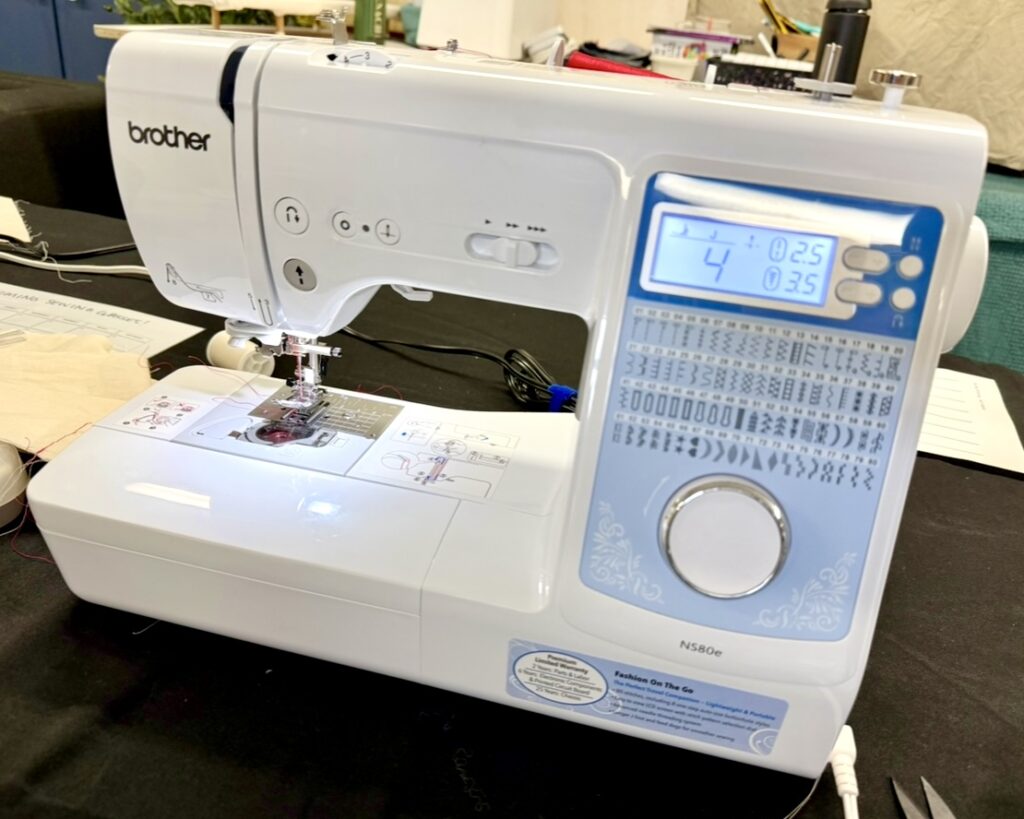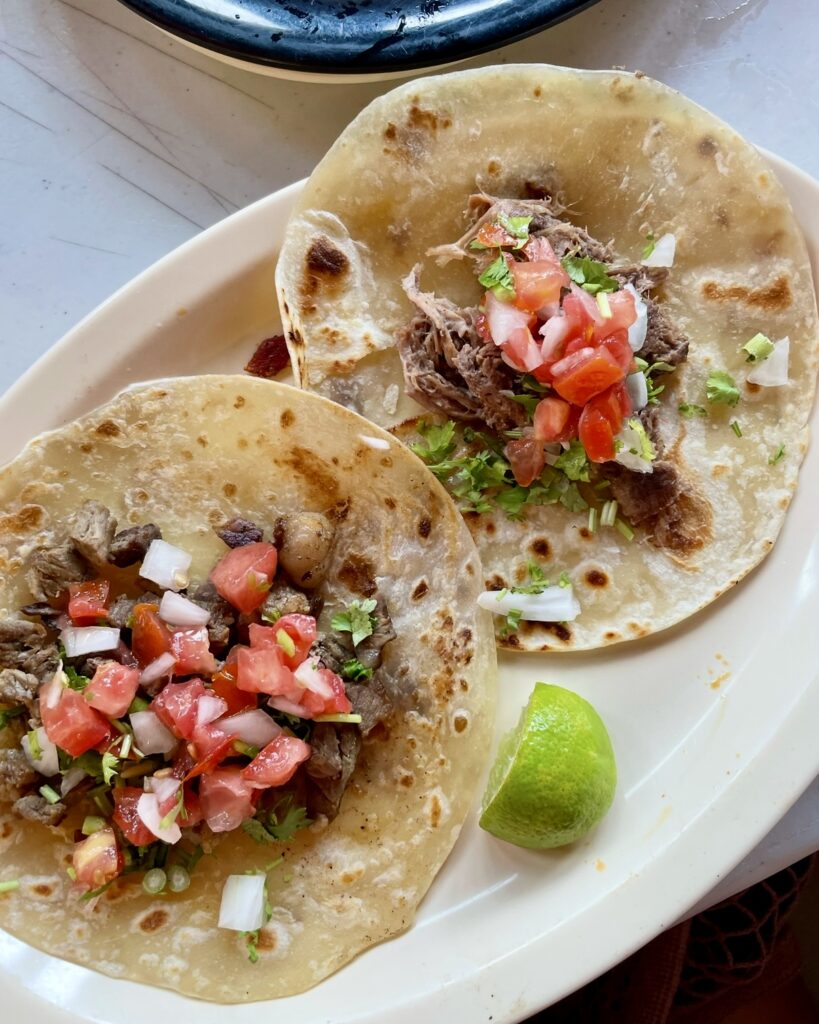Good enough is sometimes just fine.
Over the weekend, I caught myself reading way too many online reviews for a beginner sewing machine. I spent 45 minutes comparing brands, models, features, prices, and durability like I was making a major life decision. For what? To hem pants. I shook myself out of it and resolved to go to a brick-and-mortar sew and vac store later this week (yep, just learned that was a thing) and maybe touch and use a few before deciding.
That’s when it hit me: At some point in my life, I internalized that I must always get the best. I mean, sure, I deserve the best. But figuring out what the “best” is for every little thing is exhausting af.

It’s not just sewing machines. It’s restaurants (“this one got a 4.8 with 120 reviews, this one got a 4.6 but with 600 reviews”), vacations (“we should stay at the BnB with the best value”), even socks (“this brand has better construction, but this other brand has an easy pull tab”). Somewhere in the back of my brain, a little gremlin is always whispering that I need to make the best choice, optimize for the best outcome.
What comes to mind is a scene from “Master of None” where Aziz’s character wants to get tacos, and he pulls up both his laptop and his phone to find the best tacos in NYC. He scours Yelp and Eater and other review sites, while texting his friends to crowdsource best taco opinions. This scene was… too relatable.
This doesn’t just show up in figuring out how to spend my money. It seeps into how I approach my time. If I cook dinner, I want the most efficient workflow, the sharpest knife, the highest-rated pan. The seemingly unlimited choices on streaming platforms sometimes lead to watching no movie at all. The irony is that optimization often doesn’t even lead to a significantly better experience. Dinner (usually) tastes good whether or not I optimized my workflow and got every component done at the same time. Watching Lilo and Stitch again was as enjoyable as watching something new. And realistically, any sewing machine would be just fine for hemming pants and doing basic sewing projects.
We live in a world obsessed with efficiency, productivity, and ratings. There’s an endless supply of “Top 10” lists, Wirecutter guides, YouTube reviews, and Reddit threads dedicated to making sure you never settle for “just fine.” To pick wrong feels like wasting money, wasting time, wasting potential. But what if “just fine” is exactly what you needed?
What’s interesting is the quest for the best often wastes more time than it saves. I’ve lost whole evenings to Google Reviews, bouncing between four-star restaurants while my stomach growled. By the time we actually picked one, the “best” option was a pizza spot around the corner from our hotel, because it was nearby and open. And it was delicious.

Sometimes I think about how my parents or grandparents made choices. They went to the store, bought the pan they saw on the shelf, and called it a day. They didn’t agonize over whether it was the peak performer in its category. And their food cooked just fine in that pan.
Now, we live in a world where AI can optimize things for us. It can give us the shortest driving route, summarize the best reviews, and even decide which salad spinner is “most efficient.” In theory, that should be liberating. If the machine is doing the optimizing, shouldn’t that mean we have more time to relax, linger, wander, spend time doing what we want to do? Instead, the pressure sneaks back in: if AI is saving us time, aren’t we supposed to do more with it? Shouldn’t we squeeze in another meeting, another project, another side hustle? Optimization becomes a trap, where every extra minute is treated like a slot we’re obligated to fill.
What if AI’s optimization bought us the option to opt out of optimizing? To let “good enough” be the standard in the rest of our lives? To spend that saved time not on doing more, but on doing less? (Ngl, I’m proud of that first sentence, lol. Just call me Billie Shakespeare, baby!)
So I’m trying to be more ok with choosing “good enough.” Which, admittedly, is hard for a recovering perfectionist like me! I’m trying to let “fun” or “easy” be more important than “best.” To notice when I’m about to tumble down the rabbit hole of optimization and ask myself if I really need the best cheese grater before spending the next three hours reading every review on the internet. The answer is often no.
By the way, the best cheese grater is the Zyliss professional cheese grater, the kind they use at Olive Garden. I just saved you hours of reading reviews. You’re welcome.
Leave a Reply